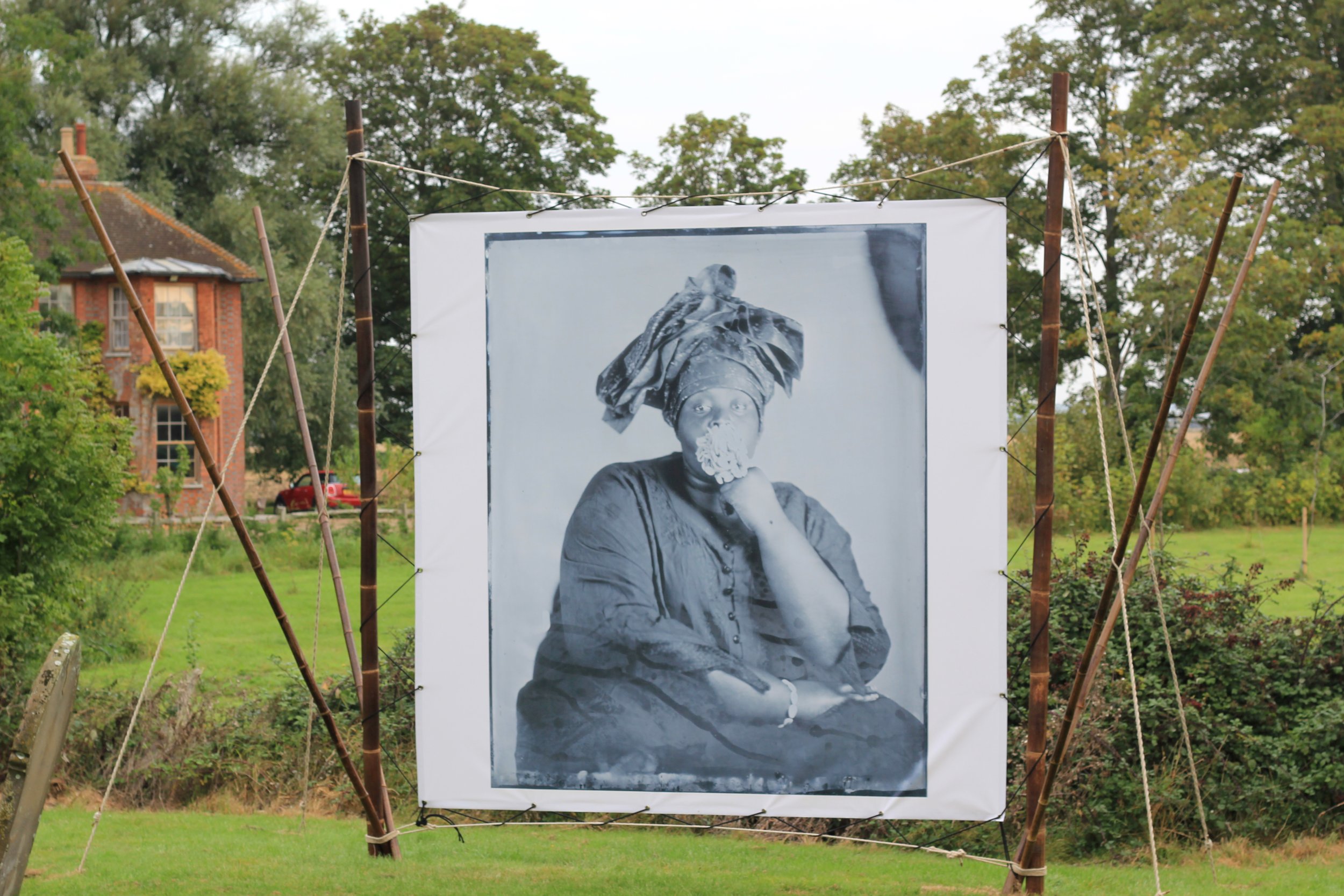Khadija Saye
Born July 1992 London, Died Jun 2017 Grenfell Tower London
Location: St George’s Church, Ivychurch
Peitaw, 2017
From the series: Dwelling: in this space we breathe
Wet plate collodion tintype on metal
Image courtesy of the Estate of Khadija Saye
In memory of Khadija’s life and work there is now a Khadija Saye IntoArts Programme to support young people to access arts training.
Mohammadou Saye also known as Ya-Haddy Sisi Saye was a Gambian British photographer who developed her own visual language using wet plate collodion tintypes. Her photography is an exploration of race, identity and belief. Her many successes include exhibiting at the Diaspora Pavilion, Venice Biennale in 2017.
Khadija’s series of wet plate collodion tintypes are self portraits and include very minimal personal detail such as sacred objects, amulets, personal items that she uses to represent her ‘otherness’.
Saye followed a journey of self reflection and search for her own identity. Her Gambian cultural heritage and interest in African ritual fed into the series of work that would become Dwelling: in this space we breathe. The exhibition catalogue describes the series as ‘the migration of traditional Gambian spiritual practices and the deep rooted urge to find solace within a higher power’.
The journey of making wet plate collodion tintypes is unique, each image has its own story to tell, a metaphor for individual human spiritual exploration. Her collaboration with Almudena Romero enabled Khadija to develop her own visual language, and a method suitable to expressing spiritual solace. “The journey of making wet plate collodion tintypes,” her artist statement notes, “is unique: no image can be replicated and the final outcome is beyond the creator’s control”.
Art in Romney Marsh is honoured to be exhibiting ‘Peitaw’ a beautiful portrait of the artist wearing a gele and an elegant cowrie bracelet while her mouth is full of cowrie shells. The shells, which were once used as currency across Africa, are a nod to indigenous wealth and, combined with the gele, perhaps denote ceremonial regality.

